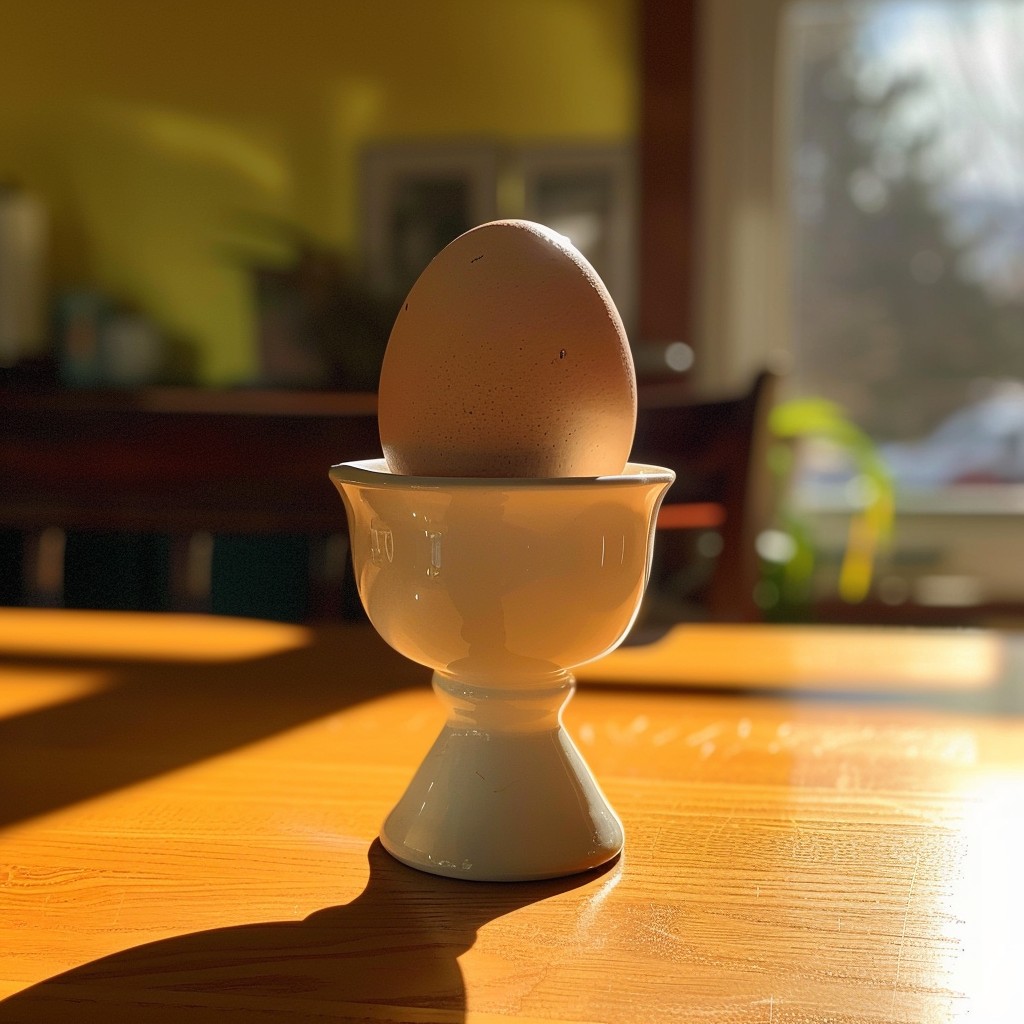Have you ever found yourself pondering over the longevity of that batch of perfectly boiled eggs sitting in your fridge? The enigma of how long hard-boiled eggs last is a common kitchen conundrum that often leaves us scratching our heads. Fear not, for this blog post is here to unravel the mystery and provide you with all the egg-citing details you need to know.
As you delve into the world of hard-boiled eggs, prepare to embark on a journey filled with surprises, tips, and perhaps a few cracking revelations. From understanding the science behind egg preservation to discovering the best practices for extending their shelf life, this comprehensive guide will equip you with the knowledge to ensure your boiled eggs stay fresh and delicious for as long as possible. So, grab your apron and get ready to crack the code on how long do hard boiled eggs last – your culinary adventures are about to get egg-ceptionally informative!

Factors Affecting the Shelf Life of Hard-Boiled Eggs
When it comes to the shelf life of hard-boiled eggs, several factors come into play. Understanding these factors can help you determine how long your boiled eggs will stay fresh and safe to eat.
The first factor is the age of the eggs. Fresh eggs tend to have a longer shelf life compared to older ones. If you’re unsure about the freshness of your eggs, you can perform a simple float test. Fill a bowl with water and gently place the egg in it. If it sinks to the bottom and lays flat on its side, it’s fresh. If it stands upright or floats, it’s best to discard it.
The way you store your hard-boiled eggs also affects their shelf life. It’s crucial to refrigerate them promptly after cooking. Bacteria can grow rapidly at room temperature, so keeping them chilled is essential for food safety. Store your boiled eggs in a covered container or wrap them tightly with plastic wrap to prevent any odors from seeping in.
Another factor that can impact the shelf life of hard-boiled eggs is their peeling status. Leaving the shells intact until ready to eat can help prolong their freshness. The shell acts as a protective barrier against bacteria and moisture loss.
Storage Tips for Extending the Freshness of Hard-Boiled Eggs
If you want to extend the freshness of your hard-boiled eggs, here are some storage tips:
1. Keep them refrigerated: As mentioned earlier, refrigeration is key when it comes to preserving hard-boiled eggs. Store them in the main compartment of your refrigerator rather than on the door where temperatures fluctuate more.
2. Use an airtight container: Place your boiled eggs in an airtight container to prevent them from absorbing any odors from other foods in the fridge. This will also help maintain their moisture content.
3. Keep them separate: If you plan on storing both peeled and unpeeled hard-boiled eggs, it’s best to keep them separate. The peeled ones tend to dry out faster, so storing them together may affect the overall freshness of your batch.
4. Label and date: To keep track of their freshness, label your container with the date you boiled the eggs. This way, you’ll know how long they’ve been stored and when it’s time to consume or discard them.
Signs That Your Hard-Boiled Eggs Have Gone Bad
While hard-boiled eggs can last for a decent amount of time when stored properly, it’s essential to know the signs of spoilage. Here are some indicators that your boiled eggs have gone bad:
1. Unpleasant odor: If your hard-boiled eggs emit a strong sulfuric or rotten smell, it’s a clear sign that they have spoiled and should be discarded immediately.
2. Slimy texture: Fresh hard-boiled eggs have a smooth texture, but if they feel slimy or sticky to the touch, it’s best to avoid consuming them.
3. Off-color appearance: Pay attention to any unusual discoloration on the egg white or yolk. If you notice any greenish or grayish hues, it indicates spoilage.
If you come across any of these signs, it’s crucial not to consume the eggs as they may cause foodborne illnesses.
The Importance of Properly Cooling Hard-Boiled Eggs
Cooling hard-boiled eggs properly is an essential step in preserving their freshness. After boiling, it’s crucial to cool them down rapidly to prevent bacterial growth and ensure food safety.
Once your eggs are cooked, transfer them immediately to an ice bath. This will halt the cooking process and lower their temperature quickly. Let them sit in the ice bath for about 5 minutes before transferring them to the refrigerator.
Properly cooled hard-boiled eggs not only stay fresh for longer but also make peeling easier. The rapid cooling causes the egg white to contract slightly, creating a gap between the egg and its shell, making it easier to peel without damaging the egg.
Creative Ways to Use Leftover Hard-Boiled Eggs
If you find yourself with leftover hard-boiled eggs, don’t let them go to waste! There are plenty of creative ways you can repurpose them into delicious meals or snacks.
One classic option is making deviled eggs. Simply slice your boiled eggs in half, remove the yolks, mix them with mayonnaise and other seasonings of your choice, then spoon the mixture back into the egg whites. It’s a crowd-pleasing appetizer that never fails to impress.
You can also use chopped hard-boiled eggs as a topping for salads or sandwiches. They add a creamy texture and protein boost to your favorite dishes. Additionally, you can mash boiled eggs with avocado or hummus for a flavorful spread on toast or crackers.
For those who enjoy experimenting in the kitchen, try incorporating hard-boiled eggs into dishes like fried rice, potato salad, or even homemade sushi rolls. The possibilities are endless!
How Long Can Hard-Boiled Eggs Sit Out at Room Temperature?
Hard-boiled eggs should not be left out at room temperature for an extended period due to the risk of bacterial growth. The general rule of thumb is to refrigerate them within two hours of cooking.
If hard-boiled eggs are left unrefrigerated for more than two hours, they enter the “danger zone” where bacteria can multiply rapidly. This increases the risk of foodborne illnesses such as salmonella.
Therefore, it’s best to consume or refrigerate your hard-boiled eggs promptly after cooking. If you plan on serving them at a gathering or picnic, be sure to keep them chilled in a cooler with ice packs to maintain their freshness and safety.
Freezing Hard-Boiled Eggs: Pros, Cons, and Best Practices
Freezing hard-boiled eggs is an option if you have an abundance of boiled eggs and want to extend their shelf life even further. However, there are pros and cons to consider before freezing.
The main advantage of freezing hard-boiled eggs is that it allows you to store them for several months without worrying about spoilage. They can be a convenient option for meal prepping or when you need boiled eggs on hand for quick meals or snacks.
However, freezing can affect the texture of the egg white. When thawed, it may become slightly rubbery or watery compared to fresh hard-boiled eggs. The yolk may also develop a grainy texture but is still safe to consume.
To freeze hard-boiled eggs, start by peeling them completely. Then, place them in an airtight container or freezer bag and label it with the date. They can be stored in the freezer for up to three months.
When you’re ready to use frozen hard-boiled eggs, thaw them overnight in the refrigerator before consuming or incorporating into recipes.
Nutritional Value of Hard-Boiled Eggs
Hard-boiled eggs are not only delicious but also packed with essential nutrients. They are an excellent source of high-quality protein, providing all the essential amino acids your body needs.
In addition to protein, hard-boiled eggs contain vitamins such as vitamin A, vitamin D, and various B vitamins. They also provide minerals like iron, calcium, and potassium.
Furthermore, hard-boiled eggs are low in calories and carbohydrates, making them a healthy choice for those watching their weight or following a low-carb diet.
Repurposing Hard-Boiled Eggs in Delicious Recipes
If you’re looking for more ways to enjoy hard-boiled eggs beyond the traditional methods, here are some delicious recipes to try:
1. Egg salad: Chop up your boiled eggs and mix them with mayonnaise, mustard, diced celery, and seasonings to create a creamy egg salad. Serve it on bread or lettuce wraps for a satisfying meal.
2. Cobb salad: Add sliced hard-boiled eggs to a bed of mixed greens along with cooked bacon, avocado slices, cherry tomatoes, crumbled blue cheese, and your choice of dressing for a hearty Cobb salad.
3. Scotch eggs: Wrap boiled eggs in sausage meat or ground meat of your choice. Coat them in breadcrumbs and deep-fry or bake until golden brown for a delightful snack or appetizer.
4. Pickled eggs: Place peeled hard-boiled eggs in a jar filled with vinegar brine infused with spices like dill seeds or red pepper flakes. Let them sit in the refrigerator for at least a week before enjoying tangy pickled eggs.
Conclusion: Ensuring Egg-cellent Freshness for Your Hard-Boiled Eggs
Now that you’re equipped with the knowledge of how long hard-boiled eggs last and the factors that affect their shelf life, you can confidently enjoy these protein-packed treats without any worries.
Remember to store your boiled eggs properly in the refrigerator, peel them only when ready to eat, and be mindful of any signs of spoilage. Whether you’re using them in creative recipes or enjoying them as a quick snack, hard-boiled eggs are a versatile and nutritious addition to your culinary repertoire.
So go ahead, crack open those perfectly boiled eggs and savor their deliciousness while they’re fresh!

